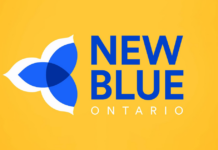Several major Canadian corporations have co-authored a plan outlining their vision towards the adoption of global digital identity – a step which they call a “necessary evolution” towards digital citizenship that’s rooted in the ideals of equality and inclusion. The plan also cites the United Nations Agenda 2030 and the Sustainable Development Goals.
Insurers Desjardins, Beneva, as well as KPMG, Telus and Vidéotron all contributed to the creation of the Digital Identity White Paper which was published with the support of the Digital Identity Laboratory on May 25.
“Most countries are moving toward digital ID. It will be implemented in tandem with governments, businesses and the public. Digital ID is a necessary evolution for society,” claims the white paper.
“We must educate people and raise awareness about digital citizenship in order to garner broad support for digital ID. Only then will we be able to create the best possible conditions to achieve this desirable and inevitable evolution of the way we enter into relationships with public and private organizations.”
The paper promises that digital identity will offer “access to every service and privilege, with no discrimination.”
“Equality and inclusion will be promoted,” it claims.
“Digital ID will be part of everyday life. It will be easy to use, secure and will allow everyone wishing to use it to have control over their personal information. For example, suppose you need to rent a car. You could do it online by providing the rental company with your relevant personal information, driver’s licence and proof of insurance from three different issuers. The rental company would be able to verify the integrity and authenticity of the information.”

Several scenarios which would require digital identity are highlighted by the companies including applying for a job, opening a bank account and taking out a mortgage.
“Taylor must provide several pieces of information so that the company can create an employee file and pay their salary via direct deposit every two weeks. Taylor uses their digital wallet to select only the verifiable credentials required by the company, providing a detailed view of the requested information,” explains the white paper.

The white paper comes shortly after Prime Minister Justin Trudeau gave an interview in which he claimed that the Covid-19 pandemic “showed us what we’re capable of” in achieving Agenda 2030 targets.
“We’re down at halftime but I remain incredibly optimistic. I mean yes, we had a pandemic and global circumstances that slowed down the progress we would have liked to have made but it also showed us what we’re capable of,” said Trudeau.
“The way we’ve come together to counter the food crisis caused by Russia’s illegal invasion. The way we worked on vaccines and getting them out around the world through the pandemic and supporting people that showed us what we’re capable of.”






















